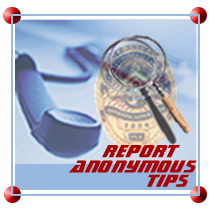Road Rage? Just Accuse the Other Guy of Driving Drunk
 After an argument with his family, Paul Amelio got in his car and sped off. His daughter called the police and said he was drunk. She gave them her name, her address, and her phone number. Police responded, saw a car matching the daughter’s description of Mr. Amelio’s, and immediately pulled him over. He was arrested for DUI.
After an argument with his family, Paul Amelio got in his car and sped off. His daughter called the police and said he was drunk. She gave them her name, her address, and her phone number. Police responded, saw a car matching the daughter’s description of Mr. Amelio’s, and immediately pulled him over. He was arrested for DUI.
Why is this news? In California and many other states where an anonymous tip is enough to pull someone over for a DUI, it wouldn’t be. This would be more than enough to convict Mr. Amelio. In New Jersey, however, they apparently have a fairly more enlightened understanding of 4th amendment law; even a non-anonymous tip warranted an explanation from the state’s highest court for why the government’s interests won out here.
This is because an anonymous tip, without anything else, usually doesn’t provide the reasonable suspicion necessary to detain someone. According to many state courts, however, DUIs are so dangerous that your freedom from unreasonable search and seizure goes out the window if anyone suspects you of driving drunk. My apprehension of driving on a road with you trumps your 4th amendment rights, essentially.
This is wrong. There should be nothing precluding an officer from being able to at least corroborate the anonymous tipster’s evidence that the driver was intoxicated by watching his or her driving. If the tipster can see the guy driving erratically, shouldn’t an officer trained in detecting signs of intoxication be able to confirm these allegations? Does this extra 15 seconds of allowing the suspect to drive needlessly put other lives at risk? Well, if the driver is driving so erratically that such a length of time would actually be dangerous, wouldn’t that be apparent rather quickly?
Every fact pattern is different and it is difficult to make blanket rules that cover every potential issue involving 4th amendment rights. What is troubling is the gradual chipping away of our personal liberties in the interests of public safety. A truly liberal country-and I am not using the term “liberal” in the political left/right sense-errs on the side of personal liberty over government intrusion. I detest the slippery slope argument as much as anyone else, but where do we draw the line between the government ensuring the safety of others and our own personal freedom? How much power are we willing to put in the hands of police to protect public safety?
Pulling someone over for suspicion of DUI is not an ordinary traffic stop- you are under the suspicion of committing a serious offense. You will be investigated. You will probably be ordered out of the car and possibly patted down. You may be “asked” to let the officer search your car. I don’t think that requiring identification or some kind of corroboration-even the most trivial-is asking for very much here. No one wants to be driving on a road with drunk drivers; then again, no one wants to be detained and searched on the capricious whim of anyone with a grudge. Which one is more dangerous?

Comments